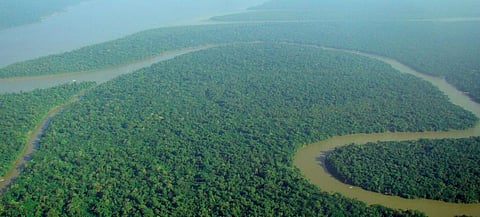

Brazil lost Amazonian rainforest equal to the size of Jamaica between August 1, 2019 and July 31, 2020, according to data released November 30, 2020, by the Brazilian National Institute of Space Research (INPE). This is in line with President Jair Bolsonaro’s stated policy to exploit the world’s largest rainforest.
Nearly 11,088 square kilometres (sq km) of rainforest were deforested in this period, an increase of 9.5 per cent, a statement by non-profit Amazon Watch said.
Some 10,129 sq km were recorded as being deforested in the same 12 months last year (2018-2019), the statement added.
Amazon deforestation had steadily increased since Bolsonaro took over as Brazil’s president two years ago, Amazon Watch said. Prior to his taking over, deforestation was below 10,000 sq km for a decade.
The explosive rate of forest loss greatly exceeded Brazil’s own target established in its 2010 National Policy on Climate Change, where a maximum of 3,900 sq km of deforestation was projected for 2020.
Brazil was 180 per cent above its target, greatly undermining its ability to fulfil commitments in the Paris Climate Accord expected to go into effect in 2021, Amazon Watch said.
The spike in deforestation meant that Brazil was the only country in the world reporting a major increase in greenhouse gas emissions in a year when the global economy stalled due to the novel coronavirus disease (COVID-19) pandemic.
Deforestation in Brazil during 2019-2020 had occurred mainly in the Amazonian state of Pará, that accounted for 46.8 per cent of the deforestation.
“The unchecked destruction of the Brazilian Amazon under the Bolsonaro regime threatens not only the future of the forest, but our collective future as well,” Christian Poirier, program director of Amazon Watch, was quoted as saying in the statement.
“In today’s vast levels of deforestation, we see the fruition of Bolsonaro’s disastrous agenda. Environmental crime runs rampant as state environmental agencies are laid to waste. Every square mile of forest loss pushes the Amazon and the global climate closer to an irreversible tipping point,” he added.